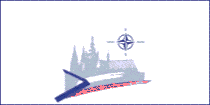|
|
||||||
|
War Decision Defining Moment |
||||||
| Thunder Bay, Ontario - Wednesday, January 29, 2003 - by: Richard P. Neumann | ||||||
|
|
||||||
| It is often the case that media attention to an issue does not necessarily equate to its importance in the grand scheme of things. The Iraqi question is not such an issue, with the outcome likely to define how the world will govern its affairs for decades to come. The tendency is to concentrate on how the use of force will affect the stability of the Middle East, the proliferation of terrorism, or the economy of the western world. The issues in play however, are far more complex and far reaching for this nation. | ||||||
| Since the onset of the Second World War, Canada has sought out membership in multi-national organizations wherever possible, using its considerable standing to insure that there are strong and moderate voices to counter those of the most powerful. This approach has served Canada well, insuring that our voice is not muted by our proximity and dependence on the U.S., allowing us to influence world opinion in a direction which more closely resembles our own values. Often, our policy has brought the world closer to American policy rather than diverging from it, helping to solidify our most important international relationship with that nation. Canada's active involvement in the UN, the Commonwealth, La Francophonie, NATO, and other international bodies has been the critical component of our foreign policy for over fifty years. The effectiveness of these institutions has been the key to our position in the world, and their continued relevance is critical if we are to play a meaningful role in the new century. Unfortunately, it is precisely the relevance of these organizations that is being challenged by the Iraqi question. | ||||||
 The
military and economic influence of the United States surpasses anything the
world has seen since the Caesars ruled Rome. The only counter to this
concentration of power are found in those notable multi-national organizations in
which Canada has played an important strategic role. It is equally true that American
patience with the UN has been waning since the decline of the Soviet Union.
The relative benefits of relying on the blue berets to undertake peacekeeping missions
where Americans fear entanglement, or in countering the influence of other great
powers are now being weighed against UN's reluctance to take a decisive position
on almost any issue. With respect to Iraq, should the America decide to act
independently of the UN, that organization's ability to affect US policy in
the future will be fatally impaired. Worse still, the US may act without at least
the tacit support of NATO. If these two pillars of Canadian policy become
irrelevant, Canada will find its voice muted, and its remaining influence crippled. The
military and economic influence of the United States surpasses anything the
world has seen since the Caesars ruled Rome. The only counter to this
concentration of power are found in those notable multi-national organizations in
which Canada has played an important strategic role. It is equally true that American
patience with the UN has been waning since the decline of the Soviet Union.
The relative benefits of relying on the blue berets to undertake peacekeeping missions
where Americans fear entanglement, or in countering the influence of other great
powers are now being weighed against UN's reluctance to take a decisive position
on almost any issue. With respect to Iraq, should the America decide to act
independently of the UN, that organization's ability to affect US policy in
the future will be fatally impaired. Worse still, the US may act without at least
the tacit support of NATO. If these two pillars of Canadian policy become
irrelevant, Canada will find its voice muted, and its remaining influence crippled. |
||||||
| Given its critical importance to Canada's future international role, Canada must use whatever influence it has to broker some compromise on this issue. If there is to be war, Canada must make certain that both the UN and NATO are seen to be participants in the decision-making process, even if direct military aid to the operation is not provided. If the Americans are convinced not to take military action, then they must be able to clearly show that their hard line against Iraq has resulted in either the de facto compliance of that nation to the terms of the 1991 Cease Fire, or at the very least their must be a firm resolve of the international community to support the use of force against future aggressive Iraqi action, including any attempt to establish a weapons of mass destruction program. No decision made by a Canadian government has been as important as this one to both our sovereignty and foreign policy since the decision to declare war against Nazi aggression in 1939, and simply deciding whether or not to support the US militarily will solve little. | ||||||
|
|
||||||
|
|
